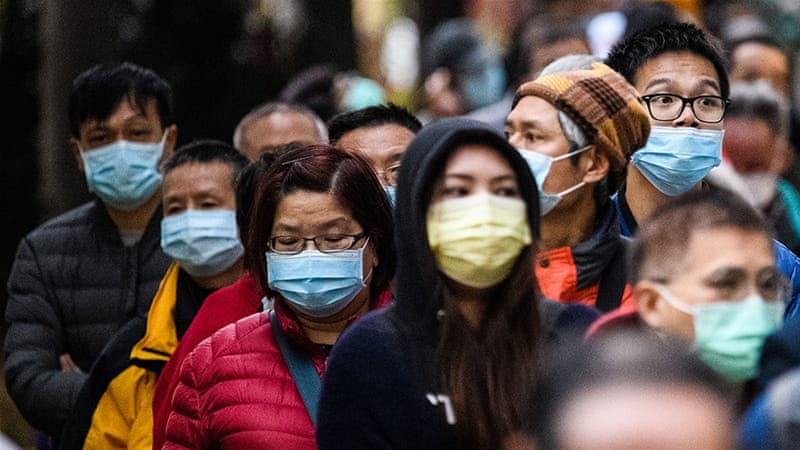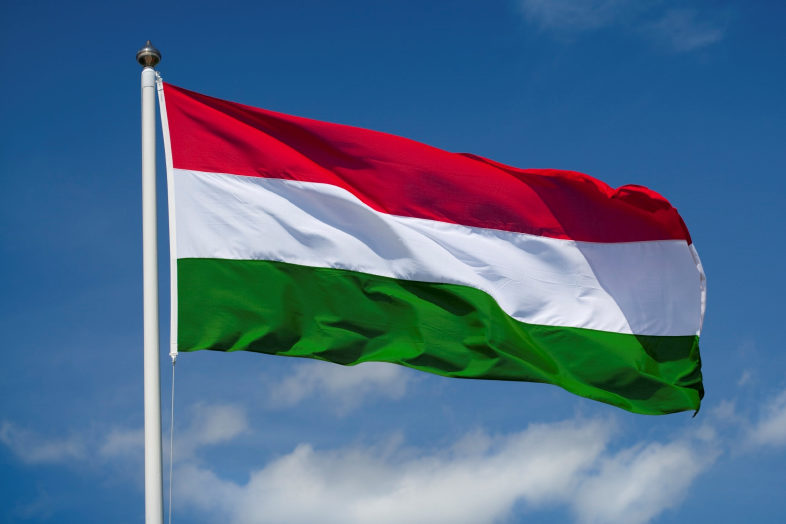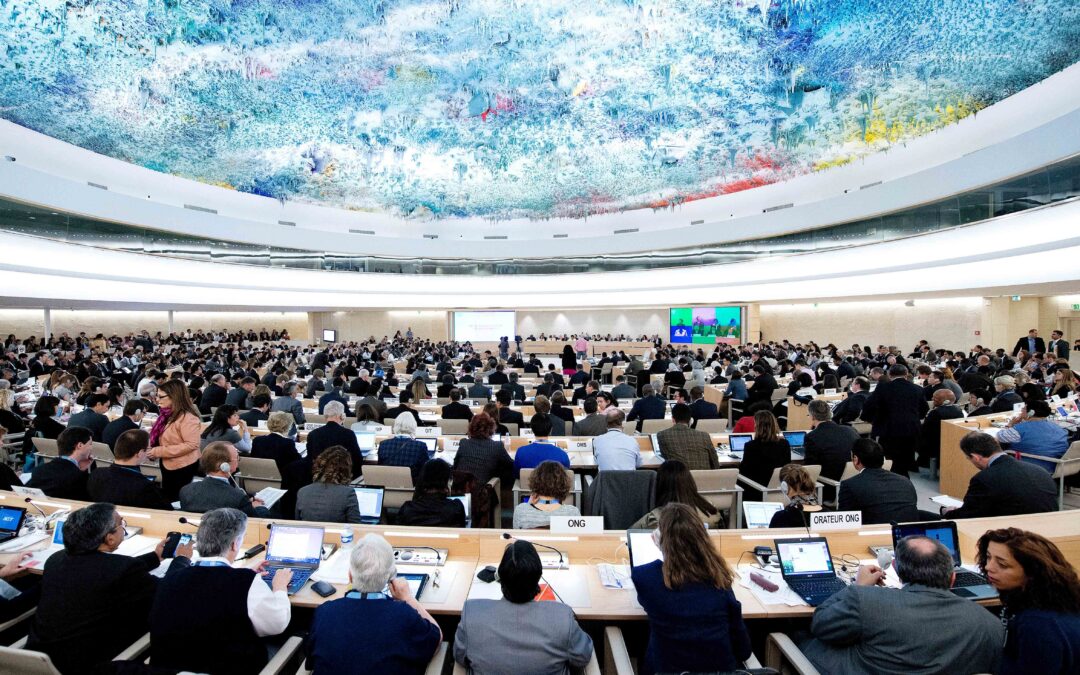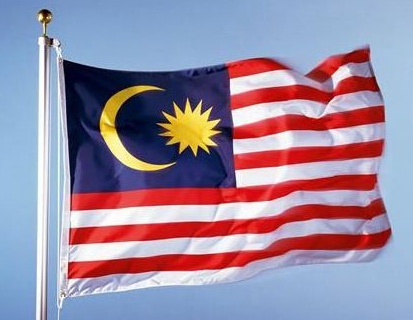
Apr 1, 2020 | News
The ICJ today called on States in Southeast Asia to respect and protect human rights online and offline, in accordance with their obligations under international law, as they take steps to stop the spread of COVID-19.
It urged States to ensure that avoiding adverse impacts on the exercise of the rights to freedom of expression, opinion, information and privacy are front and center when implementing measures to counter misinformation about the virus.
“This is a health emergency, unprecedented in modern times, that calls for urgent, targeted and effective responses by the State including measures to curtail false or misleading information about the spread of COVID-19,” said Frederick Rawski, ICJ’s Director for Asia and the Pacific.
“However, such measures must be implemented in accordance with rule of law principles, and their enforcement should protect the rights to health and life just as much as the rights to free expression, opinion, information and privacy.”
Governments in Southeast Asia have introduced and begun to enforce severe measures to control information online about the virus. This raises concerns about the potential for State over-reach in light of how Southeast Asian governments have historically enforced laws to curtail rights and censor content online in violation of international law. This trend was mapped out in its 2019 regional report.
The ICJ’s concerns has already been substantiated by recent actions taken by law enforcement authorities in some countries in the region. Arrests and detentions for online expression, in some cases without a warrant, have been reported in the Philippines, Malaysia, Indonesia, Cambodia, Vietnam and Thailand. Some of the laws in these countries which the ICJ had identified in its report as non-compliant with international human rights standards have been mis-used to arrest, detain and charge individuals accused of spreading false information online on the COVID-19 virus.
Legal provisions pursuant to which these arrests have been made carry significant criminal penalties including imprisonment terms and heavy fines – in some cases for merely expressing criticism of government measures on social media, such as complaints about inadequate screening measures or a lack of government preparedness.
“We urge governments not to repeat the mistakes of the past. The mere perception that the law is being used to suppress speech will only undermine the credibility of State institutions at a time when maintaining public trust is crucial,” said Rawski.
“Misinformation can be curtailed using less intrusive means than arrests, detentions and disproportionately onerous fines or imprisonment terms.”
To download the full statement with background information, click here.
Contact
Frederick Rawski, ICJ Asia Pacific Regional Director, e: frederick.rawski(a)icj.org
See also
ICJ, ‘Southeast Asia: ICJ launches report on increasing restrictions on online speech’, 11 December 2019

Mar 23, 2020 | News
The ICJ called today on the Parliament of Hungary not to approve a Government bill that would extend indefinitely the emergency powers of the executive to counter the Covid-19 pandemic.
The proposed legislation would enable executive rule by decree, without parliamentary approval, and would impose harsh restrictions on freedom of expression.
“States of emergency, whatever the reason to invoke them, must never be allowed to become permanent,” said Róisín Pillay, Director of the ICJ Europe and Central Asia Programme.
“Emergency measures that restrict human rights must be constantly reassessed to ensure that they remain necessary and proportionate. And even where measures are temporarily necessary, they should be subject to a “sunset clause” that ensure that it can be reviewed and will lapse if no longer justified ”.
The Hungarian emergency legislation includes offences of publishing false or distorted facts that interfere with protection of the public or cause public alarm – offences which have the potential to significantly and unduly restrict freedom of expression.
International human rights law requires that any interference with freedom of expression must be in sufficiently clear terms to be adequately prescribed by law and must be necessary and proportionate to the legitimate aim that it serves.
“This legislation is particularly worrying in a context where the Hungarian government has systematically undermined the rule of law and protection of human rights, including freedom of the media and civil society, and the independence of the judiciary in recent years,” Róisín Pillay added.
“The emergency powers are therefore particularly open to arbitrary or abusive application, without effective scrutiny by parliament or an independent judiciary.”
Background
The Bill on Protection against the Coronavirus (Bill T/9790) in the form of tabled by the Government will extend the state of danger that it had ordered by government decree from 11 March 2020.
The ICJ understands that the Bill will allow the government to rule by decree without Parliamentary scrutiny. The legislation would make it a criminal offence, punishable by imprisonment, to publish false or distorted facts that interfere with protection of the public or that alarm or agitate the public, or to interfere with a quarantine or isolation order.
Under international treaties to which Hungary is a party, including the European Convention on Human Rights and the International Covenant on Civil and Political Rights, States may take emergency measures to derogate from their international human rights law obligations in times of crisis, only the extent strictly necessary to protect the life of the nation. Derogating measures may only limit the scope of certain rights to the extent strictly necessary to meet a threat to the life of the nation, but they do not entirely suspend the applicability of any right in its entirety.
This necessity must be continually re-assessed so that the derogating measures apply for the shortest time possible. Certain human rights, including the right to life, the prohibition of torture or ill-treatment, and the essential elements of arbitrary deprivation of liberty and to a fair trial and the right to an effective remedy can never be restricted even in a state of emergency.

Mar 11, 2020 | Advocacy, Non-legal submissions
ICJ has joined other NGOs in urging India, Pakistan and the Human Rights Council, to take action to address the grave situation for human rights in Jammu & Kashmir.
The joint statement read as follows:
“Our organizations express grave concern over the human rights situation in Jammu & Kashmir, where the authorities imposed severe restrictions after a decision to revoke constitutional autonomy on 5 August 2019, including one of the world’s longest internet shutdowns, which the Indian Supreme Court has said violates the right to freedom of expression.
Hundreds were arbitrarily arrested, and there are some serious allegations of beatings and abusive treatment in custody, including alleged cases of torture. Three former chief ministers, other leading politicians, as well as separatist leaders and their alleged supporters, remain in detention under the Public Safety Act (PSA) and other abusive laws, many without charge and in undisclosed locations outside of Jammu & Kashmir. This violates fair trial safeguards of the criminal justice system and undermines accountability, transparency, and respect for human rights. Journalists and human rights defenders have been threatened for criticizing the clampdown. These violations, as those committed over the past decades, are met with chronic impunity.
We urge the government of India to ensure independent observers including all human rights defenders and foreign journalists are allowed proper access to carry out their work freely and without fear, release everyone detained without charge, and remove restrictions on the rights to freedom of expression and freedom of movement, including where they have been denied the right to leave the country by being placed on the ‘Exit Control List’.
We also call on the governments of India and Pakistan to grant unconditional access to OHCHR and other human rights mechanisms to Kashmir.
We further urge the Council to establish an independent international investigation mechanism into past and ongoing crimes under international law and human rights violations by all parties in Kashmir, as recommended by the UN High Commissioner for Human Rights.
Thank you.
- Amnesty International
- Asian Forum for Human Rights and Development (FORUM-ASIA)
- CIVICUS – World Alliance for Citizen Participation
- Human Rights Watch
- International Commission of Jurists
- International Federation for Human Rights Leagues (FIDH)
- International Service for Human Rights
- World Organisation Against Torture (OMCT)”

Mar 4, 2020 | News
Today the ICJ called on the Malaysian authorities to cease investigations of human rights defenders engaging in peaceful protest.
The ICJ further said that the investigations pose a threat to the exercise of the right to expression and peaceful assembly, which is protected under international law and the Malaysian Federal Constitution.
“These investigations have the effect of harassing and intimidating human rights defenders and pro-democracy activists and look worryingly like a new crackdown on dissent,” said Frederick Rawski, ICJ Asia Pacific Director.
Malaysian law enforcement authorities have opened investigations against Dato’ Ambiga Sreenevasan, an ICJ Commissioner, and nineteen (19) other individuals including human rights defenders Fadiah Nadwa Fikri, Dobby Chew, Amir Abd. Hadi and Nalini Elumalai. They are being investigated for violations of the deeply problematic Sedition Act 1948 and the Peaceful Assembly Act 2012, in connection with wholly peaceful gatherings held over the past few days that were called attention to the recent, sudden political changes in Malaysia.
The ICJ raised concerns that the laws pursuant to which the investigations are being conducted are inconsistent with international and constitutional human rights law and standards. The Peaceful Assembly Act 2012 imposes onerous requirements to organize a peaceful assembly. Meanwhile, the Sedition Act 1948 contains wide, overbroad definitions of what amounts to a ‘seditious tendency’, placing critical voices at risk.
“International law protects the right to hold peaceful assemblies, with limited exceptions not applicable here,” said Emerlynne Gil, ICJ Senior International Legal Adviser. “The ICJ has repeatedly called on Malaysia to abolish these laws, which impose unjustifiably burdensome restrictions and disproportionate penalties on the exercise of freedom of expression and assembly.”
The UN Special Rapporteur on the rights to freedom of peaceful assembly and of association and other international legal authorities has also said that while some regulation can be appropriate concerning places of protest, “no authorization should be required to assemble peacefully.”
Previous governments have promised to abolish the Sedition Act, including the Pakatan Harapan coalition which pledged to scrap both the Sedition Act and reform the Peaceful Assembly Act as part of their election manifesto in 2018. To date, no such reforms has been undertaken.
The ICJ reiterated its call on the government to abolish the Sedition Act and abolish or reform the Peaceful Assembly Act 2012. The ICJ also called on the Malaysian government to end the use of these laws to harass and investigate persons solely for participation in peaceful protest.
Contact
Emerlynne Gil, Senior International Legal Adviser, International Commission of Jurists, t: +66 2 619 8477 local 203; e: emerlynne.gil(a)icj.org
Background
Malaysian human rights defenders and civil society groups have been organizing peaceful assemblies to express concern over the current political developments. On 2 March 2020, Malaysian police opened investigations into several individuals for alleged violation of the Sedition Act.
Section 4(1) of the Act reads “[a]ny person who… does or attempts to do, or makes any preparation to do, or conspires with any person to do, any act which has or which would, if done, have seditious tendency… shall be guilty of an offence and shall, on conviction, be liable for a first offence to a fine not exceeding five thousand ringgits or to imprisonment for a term not exceeding three years or to both.”
The Peaceful Assembly Act 2012 sets down onerous requirements that must be met in order to carry out a peaceful assembly, including: restrictions on the right to organize or participate in an assembly (Section 4) which includes non-citizens; requirements for a ten day notice of an assembly to the Officer in Charge of the Police District, failure to do so will be punished by a fine not exceeding ten thousand ringgit (Section 9(5)); and broad restrictions and conditions that may be imposed by the Officer in Charge of the Police District at their discretion (Section 15).

Feb 28, 2020 | Advocacy, Cases, Legal submissions
The ICJ has intervened with an expert opinion to support the board members of the Turkish Medial Association in the appeal against their conviction for hate speech offences. The conviction raises significant concerns for freedom of expression.
The case before the Appeal Court concerns 11 defendants, all members of the Council of the Turkish Medical Association: Mehmet Raşit Tükel, Taner Gören, Sinan Adıyaman, Mehmet Sezai Berber, Selma Güngör, Bülent Nazım Yılmaz, Funda Barlık Obuz, Dursun Yaşar Ulutaş, Ayfer Horasan, Şeyhmus Gökalp and Hande Arpat.
On 3 May 2019, the defendants were convicted at first instance by the Ankara 32 Assize Court for having issued statements opposing the war during Turkey’s Operation Olive Branch in Syria.
The Assize Court concluded that the members of the Council publicly provoked hatred or hostility in one section of the public against another section which has a different characteristic based on social class, race, religion, sect or regional difference, in a way that creates an explicit and imminent danger to public security. The Court sentenced each defendant to two terms of 10 months’ imprisonment for provoking the public to hatred and hostility in two separate statements.
Hande Arpat was additionally convicted of “disseminating propaganda in support of a terrorist organization” to 18 months and 22 days in prison concerning her three Facebook posts.
The ICJ expert opinion presented before the Court of Appeal examines international law standards relevant to the criminalization and prosecution of crimes of expression.
Turkey-AssDoctors-ExpertOpinion-2020-ENG (download the expert opinion in English)
Turkey-AssDoctors-ExpertOpinion-2020-TUR (download the expert opinion in Turkish)









